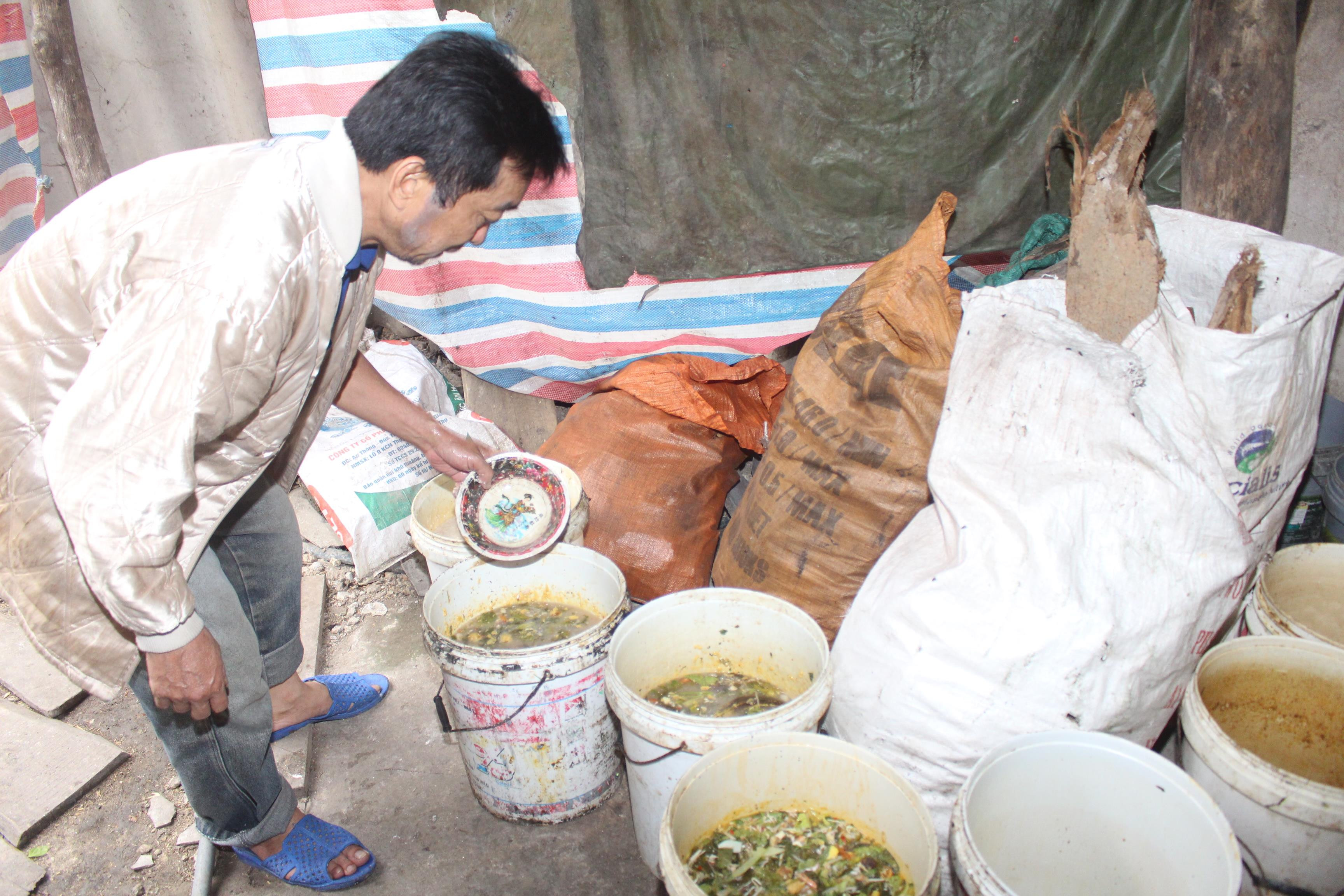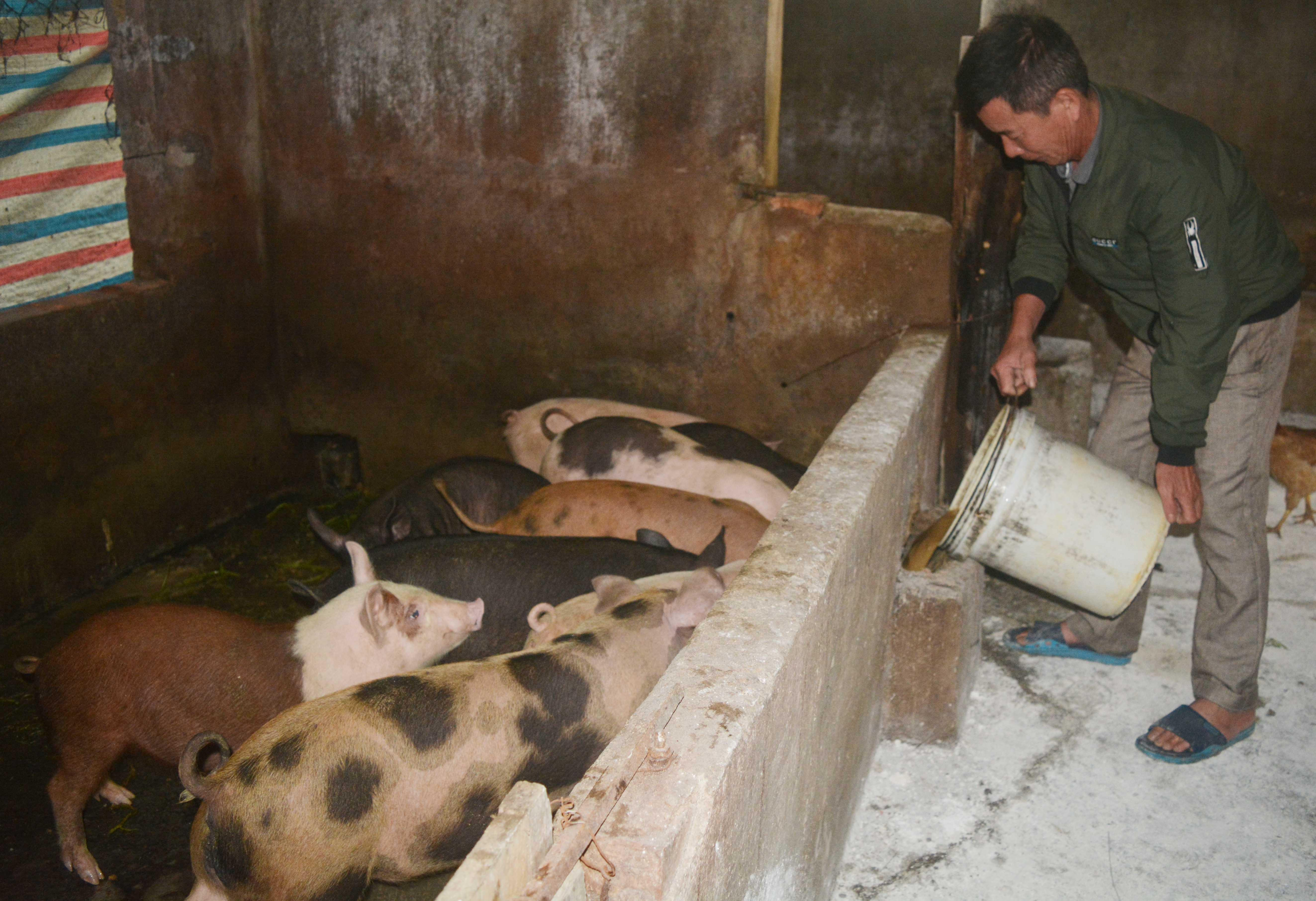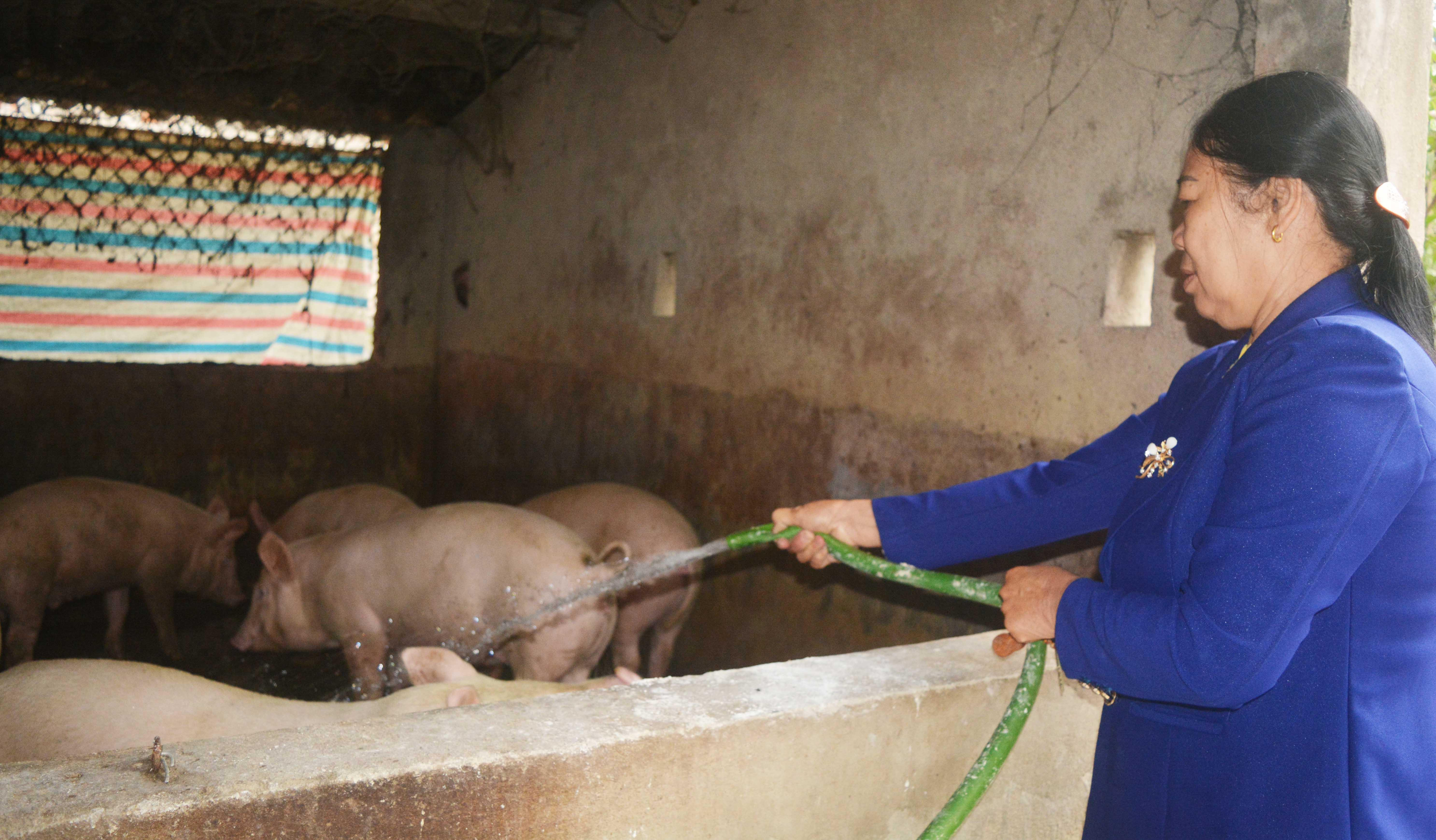Risk of spreading African swine fever from using "garbage water"
(Baonghean.vn) - According to the World Organization for Animal Health, the use of untreated leftover food accounts for 60% of the source of infection and spread of African swine fever. However, currently in the province, the use of leftover food from households or collected from shops to raise pigs is quite common.
 |
| Raising pigs by utilizing leftover food is quite popular nowadays. Photo: Viet Hung |
Being an area adjacent to Vinh city, most people in Hung Tay commune (Hung Nguyen) raise pigs with leftover food from restaurants (also known as "garbage water"). Using leftover food to raise pigs is quite common, especially for small-scale households (from a few to a few dozen pigs), it not only saves money but also makes the meat easy to consume.
According to Mr. NV H, a farmer in Hung Tay commune, the meat quality of pigs raised in this way is better, and is favored by consumers because it is "clean", only fed leftovers, no growth-promoting feed". Mr. H.'s family raises 30 pigs, and on average, each day he buys about 10 barrels of garbage water (20 liters) from restaurants at a price of 5,000 - 10,000 VND/barrel.
 |
| Raising pigs with garbage water is less costly, but currently there is a risk of spreading disease. Photo: Thanh Phuc |
For decades, Mr. Nguyen Duc T.'s household in Quynh Giang commune (Quynh Luu) has been raising pigs by utilizing leftover food from other households in the commune and shops in the district. He always maintains about 5-6 sows and 70 pigs, and on average, he collects 35 barrels of garbage water every day to feed the pigs.
Mr. Tam said: "Raising pigs in this way requires low investment costs. The pigs grow slowly and can only be sold after 3-4 months, but there is no fear of loss. On average, each year the family earns hundreds of millions of dong in profit."
Ms. Ba Thi Dung - Deputy Head of the Department of Agriculture of Hung Nguyen district said: "Most small-scale livestock households use leftover food from shops to raise pigs, which poses a high risk of disease. In the current situation of African swine fever outbreak, we focus on propaganda to make people more careful in choosing food for pigs; thoroughly educate households that when leftover food is brought home, it must be heat-treated (boiled) before feeding pigs."
 |
| During an outbreak, in addition to cleaning the barns, choosing the right food source is also very important. Photo: Thanh Phuc |
However, according to veterinary experts, leftover food poses a high risk of spreading disease in pigs because the origin of food in restaurants and small eateries is not strictly controlled.
On the other hand, leftover food that has been left to spoil from day to day can contain the pathogen of swine fever. Transporting leftover food from many different stores also increases the risk of infection in pigs. Therefore, the use of leftover food to raise pigs needs to be considered, especially when swine fever is currently breaking out. In addition, small-scale farmers need to strictly follow biosafety procedures, vaccinate pigs against disease on schedule, and feed pigs with adequate nutrients...
According to the World Organization for Animal Health, the use of untreated leftover food accounts for 60% of the spread and infection of African swine fever. Therefore, the "5 no" recommendations include: Do not hide the epidemic, do not buy, sell, or transport dead sick animals; do not slaughter or consume the meat of dead sick animals; do not throw dead animals into the environment, and do not use leftover food without heat treatment. In particular, pay special attention to strictly controlling the source of untreated leftover food.


